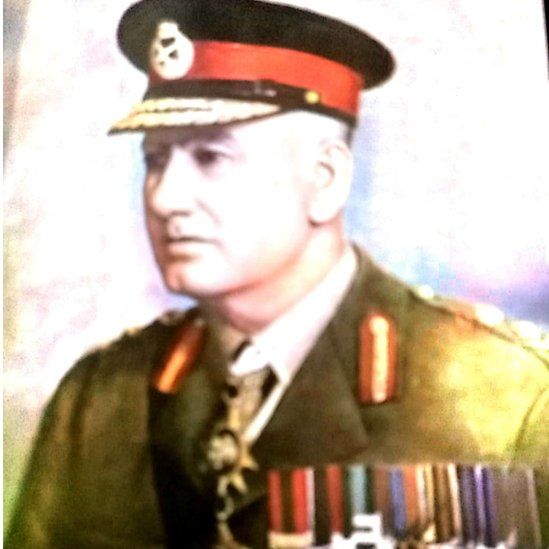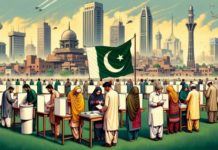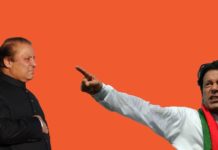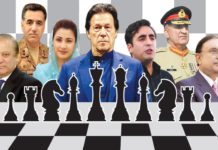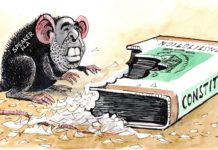This is the year 1958. In the last days of October, much changed in Pakistan, martial law was instituted and Ayub Khan was made its Chief Minister (the word administrator was not used in Urdu at that time) and also the post of Prime Minister was overwhelmed in front of his searing personality.
But when the sun rose on October 28, much more changed.
Iskander Mirza, who had held the presidency till now, had left for Quetta in the first phase of his exile. It was just that morning that Lt. Gen. Muhammad Musa Khan was waiting for a meeting outside the office of Ayub Khan, who had recently taken over the presidency.
For the visitor, this event was one of the most important and pleasant days of his life as General Ayub Khan told him that he had appointed him (i.e. General Musa) as the Commander-in-Chief of the Army (then Chief of Army Staff), thus Ayub Khan as President and General Muhammad Musa Khan as Commander-in-Chief of the Army started their careers almost simultaneously.
General Musa had never been so anonymous before. A few years before 1958, there were historic student riots in Karachi that resulted in large-scale casualties, the Federal Interior Minister’s car and the Inspector General of Police’s office were set on fire, and weapons were looted from police stations and city shops.
When the situation got out of hands due to these incidents, the government called in the army to help the civil administration. General Musa used to be General Officer Commanding (GOC) Karachi in those days. During this peacekeeping operation, he himself visited many places.
On one such occasion, journalists asked him: “Will you shoot to control the situation?”
General Moses replied without hesitation: “We will not kill our brothers.”
Determined not to shoot at his brothers, it was General Musa who, exactly five years after the incident, took over the leadership of the four-star general in the organization in which he joined as a cadet 40 years ago.
General Musa’s statement which was published in Zamindar newspaper (Insert Picture)
Numerous important and historic events may have taken place during his long professional and political career, but the events that unfolded as the Commander-in-Chief are not only historic but also about the future of Pakistan and especially the Kashmir issue are of extraordinary importance.
The number of these events is three, they are part of each other and are interconnected. Namely, Operation Gibraltar, Operation Grand Slam and the 1965 Pakistan-India War.
These three incidents are also like a game of chess in which the heads of the army are seen somewhere, and at times they are nowhere to be seen, but this story is a bit long, so it will be difficult to understand the background of these historical events, if from April 7, 1965 the events are not kept in mind.
On that day, armed clashes broke out between Pakistan and India in the coastal, swampy border area of Sindh. According to the then Information Secretary Altaf Gohar, the clashes started on that day by India and as a result of retaliation by Pakistan, the Indian artillery fell silent.
Three days later there was another clash in which India vacated a post from the border area and withdrew. These were the first major achievements of the army under General Musa, who were to play an important role on the military and political fronts in the days to come.
These two incidents raised the spirits of the army, which was the reason why the hearts of some of its officers now began to ache for a big and decisive battle on this front. Finally, on April 26, they got a chance.
The attack began on April 26, with the battle raging at ‘Bayarbat’, which was conquered by Pakistan. Since it was a maritime and swampy area, special arrangements were needed to cross the swamps and waters. An arrangement was made by the Indian Army in the area.
According to Altaf Gohar’s book ‘Ayub Khan: The First Ten Years of Military Rule’, the Indian Army crossed a gulf by building a bridge of empty gallons of iron. It was very easy to destroy this temporary arrangement and block the return of the Indian Army. General Musa prepared himself to seek permission from Ayub Khan for the operation, but the country’s military ruler was thinking differently from his commander-in-chief.
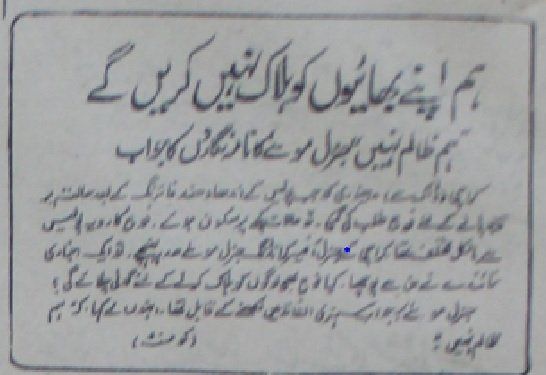
If the Pakistani army had blocked the way of the Indian troops in this battle, the situation would have exploded. The two world powers, the United States and Britain, were already upset by the clashes and were trying to mediate between the two major powers in the region. In that case, the problems would have become more serious and it would have been difficult to avert a full-blown war between the two countries.
This was the reason why the then ruler Ayub Khan refused to allow General Musa to take any such action and instructed him to focus on consolidating his position instead of pursuing the enemy further.
Ayub Khan’s decision was contrary to the wishes of the army and its chief, which led to the formation of negative thoughts among few of the military generals and the troops as if this old military ruler had become an obstacle in the way of Pakistan’s conquests.
General Musa must have been silent on this decision, but it seems that he did not abandon this plan, the evidence of which will become clearer in the days to come.
The GHQ and some military officers were already aware of these thoughts on April 10, when Ayub Khan arrived at the General Headquarters after visiting the Soviet Union.
Was the army chief’s mind also working behind this mindset? This is the idea because the main point of the briefing given to Ayub Khan on this occasion was that the Indian Army had come to ‘Rann of Kutch’ with full readiness but seeing the army fighting under the leadership of our brave commanders, they abandoned their positions. Therefore, Pakistan should take advantage of this precious opportunity and pursue the enemy in this area.
The briefing given to the head of state at the GHQ is very important in these incidents which helps in understanding General Musa’s mind.
It seems that the idea of disarming the enemy by blocking the return of the Indian Army on April 26 was also a product of this mindset. Ayub Khan felt that even the senior officers of the army were very proud of this situation and were intoxicated with victory and he thought that it was the same success that China had achieved against India in 1962, so He wanted this rare opportunity not to be wasted and India to be taught a lesson.
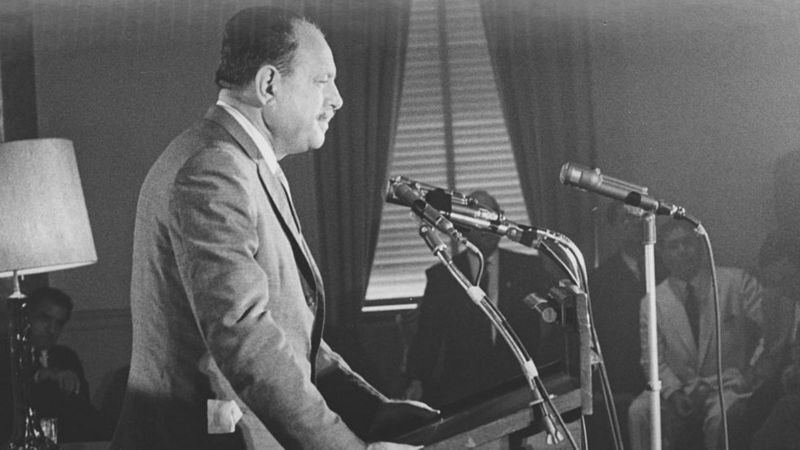
These scenes in the GHQ disturbed Ayub Khan because, according to his observation, the officers surrounded by General Musa would force him to take drastic action at any time. That is why, instead of leaving the matter to General Musa, he took the decision of military matters into his own hands.
Although General Musa does not appear to be very prominent in what happened next, but the turn of events, was all this possible without him? This decision of Ayub Khan raised many questions in many hearts about his morale etc. The visit of GHQ and the incident of stopping the active pursuit of India on April 26 serves as a basis in which it is easy to peek into Ayub Khan’s political future and the causes of the September war between the two countries can also be searched.
Subsequent events suggest that these may have been the events that led to a state of mental harmony between the Foreign Ministry of Pakistan and the GHQ. At that time, in the language of these two institutions, which played a decisive role in state affairs, but also in the language of Altaf Gohar, a series of suppressed criticisms against Ayub Khan began in the top leadership of the army and in the Foreign Ministry circles.
The GHQ regretted why the Indian soldiers confined in the ‘Rann of Kutch’ were allowed to get out of the ‘trap’, even though their path could have been cut very easily.
Did they have the support of General Musa? The prominent people who wrote about this incident in their books do not provide an answer to this important question, but the army chief may have been unaware of it, and if he did, the question is, which side was he at?
How careful was Ayub Khan in any armed confrontation between Pakistan and India? This can be seen in many incidents related to this situation.
The death of Indian Prime Minister Jawaharlal Nehru almost a year ago sparked a leadership crisis. On this occasion, his Foreign Minister Zulfiqar Ali Bhutto and Foreign Secretary Aziz Ahmed tried hard to convince him that Pakistan should take advantage of this opportunity, but failed because, Ayub Khan refused to give up on the path of negotiations.
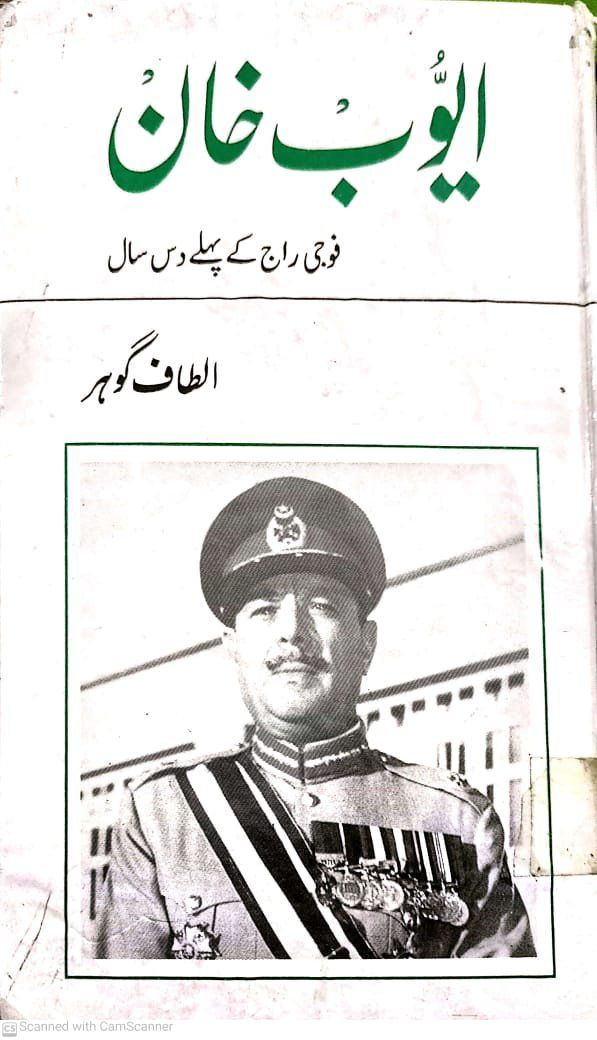
But some incidents suggest that General Musa was thinking differently because after that the pressure on Ayub Khan was increased. But even at this stage, he made it clear to his Foreign Office and the Army that we should keep up the pressure on India anyway, but not in provoking way, because of the horrors of war.
He had another idea, he understood from his heart that Kashmir is important for Pakistan but it was unreasonable for him to endanger Pakistan for this.
There is also evidence that he had extraordinary concerns about the performance and competence of his intelligence agencies and, in some cases, the Foreign Office. Earlier, Indian-administered Kashmir, was in the throes of a major upheaval due to an extraordinary incident like the ‘Hazratbal’ (a large Muslim shrine in Srinagar)
The reports that were presented to Ayub Khan about these incidents, Ayub Khan always looked at them with suspicion. He was dissatisfied with the performance of the intelligence agencies anyway. He believed that these agencies were clinging to the old style of police interrogation and did adhere to modern methods of intelligence.
Last year, when a protest movement was launched in Indian-administered Kashmir in response to the ‘Hazratbal’ incidents, guerrilla forces were deployed in Kashmir (long before Operation Gibraltar). This experiment proved futile and the Indian forces captured all these ‘Jihadis’ in a few days and embarrassed Pakistan.
When Sheikh Abdullah came to Pakistan after some time, he also informed Ayub Khan about the reality of this failed experiment and the performance of the agencies. The agencies had informed Ayub Khan about their contacts and achievements in Indian-administered Kashmir. Abdullah revealed the truth and said that these were all fabricated stories and fictions.
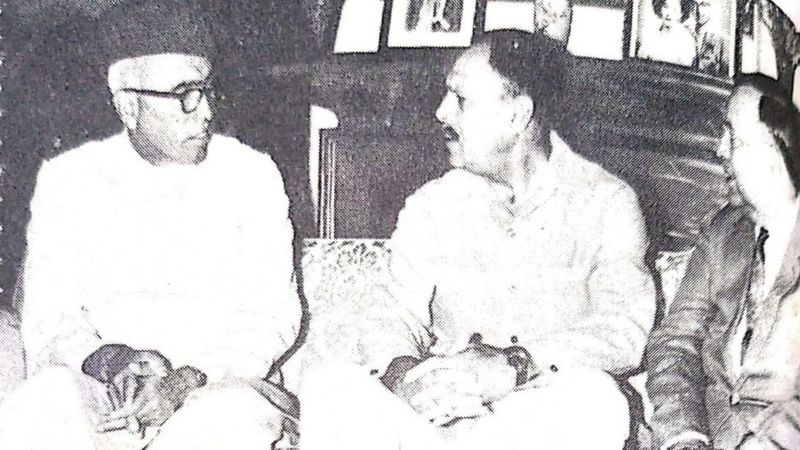
Despite these failed experiments, the GHQ from time to time presented Ayub Khan with plans to send trained guerrillas to the valley to ensure the independence of the Kashmiris by inciting revolt in Kashmir. In 1964, when he was once in Dhaka, a similar plan was presented to him, which Ayub Khan rejected labelling it, ‘Childish’.
It was as if the relationship of trust between Ayub Khan and General Musa had begun to rupture. In the coming days, the evidence of which came to light rapidly.
In February 1965, the same plan was presented to the Cabinet Intelligence Committee again. Besides Ayub Khan, the meeting was attended by General Musa, his close military officers, Foreign Minister Zulfiqar Ali Bhutto and Foreign Secretary Aziz Ahmed. Chiefs of the Air Force and Navy were not invited to the meeting.
An ISI officer briefed the audience with the help of a blackboard. After that, Aziz Ahmed gave some more details. The gist of his talk was that India is in a weak position at the moment, it is facing a crisis of leadership, and the valley is in the grip of a passionate people’s uprising, so Independence of Kashmir is possible very soon.
He also responded to a possible objection to the plan, saying that as Pak-China friendship was expanding rapidly these days, there was no threat of an Indian attack on Pakistan.
The scene after this conversation is very interesting. While Aziz Ahmed was talking, Ayub Khan was taking notice with his head down. As soon as his speech was over, Ayub Khan raised his head and asked the audience, “Does anyone else have something to say?”
General Musa and other officers remained silent, which meant that they were in favor of the plan. Ayub Khan then said, “Tell me, who gave permission to the Foreign Office and the ISI to make such a plan?” Such a plan is not their job. I had only instructed that the situation in Kashmir should be monitored, they have no right to impose such a plan on the government.
After Ayub Khan’s harsh response, the audience became upset. Thus, this plan of armed intervention in Indian-administered Kashmir was presented in the office, but surprisingly, on July 14 of that year, the same plan was in front of them in full swing. General Musa was also present at the meeting but remained silent as usual. Altaf Gohar writes that he was summoned to the cabinet room. Ayub Khan saw him and said, “Much will depend on how we perform on the propaganda front.”
After saying this, Ayub Khan left the room and Zulfiqar Ali Bhutto started presiding over the meeting. As if the responsibility of military affairs which Ayub Khan had in his in his hands were given back to the Chief of Army Staff.
Addressing the audience, the Foreign Minister said that a people’s revolution has engulfed the entire region, the Kashmiri people are engaged in a life-and-death battle while large groups of freedom fighters are fighting to liberate them from India. If Pakistan remains a silent spectator on such an occasion, history will never forgive her. Therefore, the government has decided to provide adequate moral and material support to the freedom fighters.
No one was allowed to ask questions due to the sensitivity of the issue. The meeting was a declaration of the fact that not only has Operation Gibraltar been approved, but the military has received orders to implement it.
The meeting was attended by the then Commander-in-Chief of the Army, General Musa, Director of Military Intelligence and other key military officers. All of them sat in a very polite manner during the proceedings of the meeting. The fact that they did not raise any objection and remained completely silent indicates that all this was happening according to their wishes.
How did Operation Gibraltar come to be approved? This was a matter which Ayub Khan did not agree with till now and he had rejected it many times. But then how did he suddenly get ready for it? It is a mystery to which the answer never came to light but there was an idea in his mind about the Hindus that war is not their cup of tea, if they are beaten at the right time they can be dusted off.
Did the foreign minister or the army chief design this strategy? No one knows, but it is speculated that the planners of Operation Gibraltar may have aroused Ayub Khan’s feelings about the Hindus by presenting to them the picture of the situation that Bhutto described at the meeting.
The GHQ’s insistence on action in Kashmir and its success in persuading Ayub Khan proved once again that he and General Musa were thinking differently, but in the end it was General Musa who succeeded.
The operation began on August 7 and the Director Military Intelligence told the Information Secretary, “In the next 24 hours, the Mujahideen will have captured many important places and I will give you the news that will resonate all over the world.”
After a while, the DG ISI told him that we have a lot of contacts in the valley, I will rain news on you. Just two days after this conversation, he told the Information Secretary with a broken heart that all Contacts have been cut off and all the Mujahideen have been captured.
On August 8, All India Radio aired interviews with three of the captured fighters, which upset the Director of Military Intelligence, who said, “The idiots just blew the whistle.”
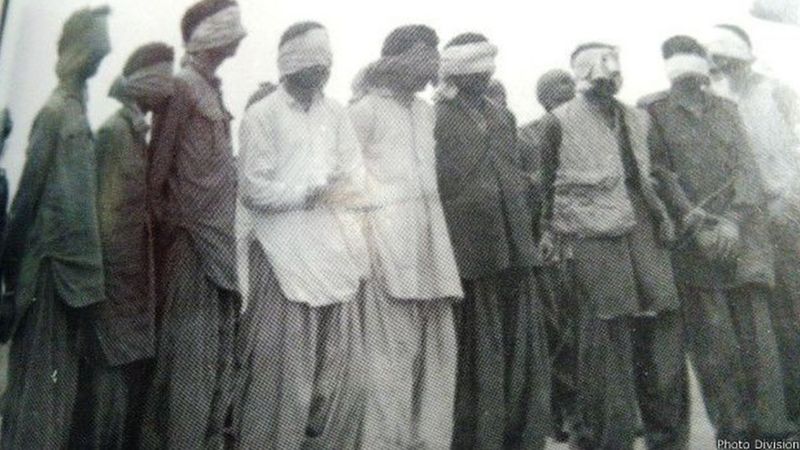
Seven groups of guerrillas were formed for the operation. Only one group of them survived. All the others fell into the enemy’s trap or failed and returned while Muzaffarabad came under the enemy’s target.
In the words of Altaf Gohar, the entire operation had disintegrated and died. All the estimates of the Foreign Office and the intelligence services were wrong and the reports were baseless.
On 28th August, the Indian Army captured the valley of ‘Dara Haji Peer’ and put the operation in a precarious position. Disturbed by this, Commander-in-Chief General Musa approached the Foreign Minister as Ayub Khan, on this critical occasion, had disappeared from the capital and was in Swat.
“My troops have nothing but rocks to fight with,” said General Musa, talking in a state of anguish. He was meeting with General Akhtar Hussein Malik, commander of Operation Gibraltar, who believed that it had become necessary to launch Operation Grand Salaam to get out of this situation and to launch another offensive.
General Musa wanted permission from Ayub Khan to start the operation. To this end, Bhutto went to Swat and met Ayub Khan, who issued a written order addressed to the foreign minister and commander-in-chief that the Kashmir issue can be revived without creating grounds for full-blown war with India.
The details of the order prove that Ayub Khan was kept in the dark until August 29, and did not know that Operation Gibraltar had failed. Apart from the army chief, who was responsible for informing the head of state about the war situation, all the details related to this crisis are vague.
General Gul Hassan writes in his autobiography ‘The Last Commander-in-Chief’ that not only Ayub Khan was unaware of the facts but also the GHQ. The relevant officers fighting on the front were not providing the real picture and were busy erasing the evidence of failure, there was only news of success in the GHQ, and the victory bells were ringing.
If all this was communicated to General Musa, then was he also unaware of the facts, this is the guess, one reason for this was given by General Gul Hassan and the other reason was written by General Musa— the weakest link of this operation was the communication system.
Operation Grand Slam was launched on August 31. The operation was halted after fierce resistance from the enemy on two fronts. By September 2, the whole operation was in disarray. General Gul Hassan’s testimony is that initially there was news of success at General Headquarters, but it seems that the heat of the changing situation had now reached General Musa. He visited General Malik, the commander of Operation Gibraltar in Murree headquarters and from there he went straight to the battle front.
He writes that there was no communication between the headquarters and the front, no one was aware of what was happening and who was where. In this situation, General Musa decided to change the command of the operation.
The decision was implemented immediately that evening and General Akhtar Hussain Malik was ordered to hand over the command to General Yahya Khan. The news of the change of command came as a shock to the people of the country as they had hitherto believed that Pakistan was gaining victories over the enemy but now the situation was different.
Handing over command to General Yahya meant wrapping up the operation. After leaving the command of the operation, General Akhtar Malik met the Secretary Information and under the weight of his failed strategy said; what will I say to my children?
Whether it is Operation Gibraltar or Operation Grand Salam, these two operations are an important and mysterious chapter in the history of the nation, the answers to which are still the responsibility of those stockholders accountable for these operations. These operations also had a devastating effect on the Kashmir issue globally.
As Commander-in-Chief of the Army, General Musa was responsible for answering many of the questions.
In “My Version”, he blamed the Foreign Ministry for the project and claimed that the GHQ had rejected the project several times. He wrote that the purpose of this operation was to destroy the means of communication of Indian troops in the valley and to carry out various operations to create conditions for insurgency.
He said that the troops who performed the operation performed well overall but neither the people of Indian-administered Kashmir nor the political leadership there were ready for such operations. Who was to communicate this with the locals? He did not put this responsibility on anyone.
He also wrote that there were five divisions of army stationed in Kashmir in the presence of which the people there could not resist. If so, why was the operation launched? General Musa did not answer this question too.
The outcome of these operations and the confessions of General Musa not only opened the floodgates of incompetence of some institutions and officials but also confirmed all the concerns of Ayub Khan about intelligence etc. But why did General Musa say this after such a big accident? He mentioned that it was a plan of the Foreign Ministry which he repeatedly opposed.
The question is, if he was opposed to the plan, he would have had the support of the head of state who was not in favor of such an adventure either, if the whole plan was an invention of the Foreign Ministry’s mind. In the days when the Ministry of Foreign Affairs was working on this project, even the officers of General Musa used to visit the ministry. The name of these officers was also mentioned in the series of whispers against Ayub Khan. Were these people not at the behest of General Musa, did they not know it or was it all happening according to mutual understanding?
Altaf Gohar did not openly make any allegation but he is all for the third possibility. There were situations in which an operation against an enemy like India was launched with extraordinary implications, but when it failed, General Musa acquitted himself, saying that the plan was prepared in the Foreign Ministry.


